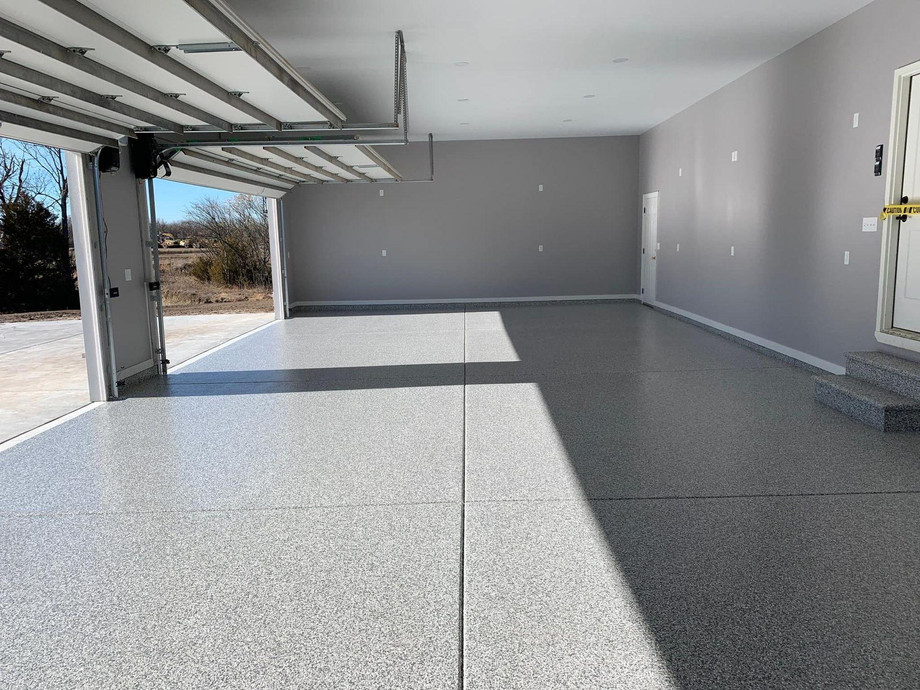Your floor is not just a surface to walk on; it's a part of your space's personality. Whether it's your home, garage, or workspace, the right floor can make a significant difference. One excellent way to enhance your floors is by using floor coatings. In this article, we'll explore the world of floor coatings in simple terms, explaining what they are, their benefits, and how to choose the right one for your needs.
What Is Floor Coating
Floor coating is a protective layer applied to your existing floor surface. It's like giving your floor a makeover that not only enhances its appearance but also improves its durability. These coatings are available in various forms, including epoxy, polyurethane, and concrete sealers.
Types of Floor Coatings
Epoxy Floor Coatings: Epoxy is a popular choice for many homeowners and businesses. It's a tough and durable coating that creates a shiny, seamless, and easy-to-clean surface. Epoxy is often used in garages, basements, and commercial spaces due to its resistance to chemicals, stains, and wear.
Polyurethane Floor Coatings: Polyurethane is known for its excellent resistance to UV rays and moisture, making it ideal for outdoor applications. It provides a glossy finish and is often used on hardwood floors and outdoor decks.
Concrete Sealers: If you have a concrete floor, concrete sealers can be a great option. They penetrate the concrete to provide protection against moisture, stains, and abrasion while preserving the natural look of the concrete.
Benefits of Floor Coating
Now, let's dive into the advantages of using floor coatings:
Enhanced Aesthetics: Floor coatings can transform your space by adding a sleek, glossy finish. You can choose from various colors and styles to match your interior or personal taste.
Durability: Coated floors are more resistant to wear and tear, making them ideal for high-traffic areas. They can withstand the weight of vehicles, heavy equipment, and the daily activities of a busy household.
Easy Maintenance: Coated floors are a breeze to clean. Spills wipe up effortlessly, and you won't have to worry about stains soaking in. Regular sweeping and occasional mopping are usually all that's needed to keep your floor looking great.
Chemical Resistance: Epoxy and polyurethane coatings are particularly resistant to chemicals, which makes them suitable for garages and industrial spaces where oil, grease, and other substances may be present.
Improved Safety: Some floor coatings offer slip-resistant properties, which can be crucial in areas prone to moisture or spills. This added safety feature is especially valuable in kitchens, bathrooms, and commercial settings.
Longevity: Properly applied floor coatings can last for many years, even decades, without the need for significant maintenance or replacement.
How to Choose the Right Floor Coating
Selecting the right floor coating for your project is essential to achieve the desired results. Here's how to make an informed decision:
Consider the Space: Think about where you want to apply the floor coating. Is it a residential or commercial area? Does it have specific requirements, such as chemical resistance or slip resistance?
Surface Preparation: The success of your floor coating project often depends on proper surface preparation. Make sure your floor is clean, dry, and free of cracks or defects before applying the coating.
Budget: Different types of floor coatings come at varying price points. Consider your budget and choose a coating that meets your needs without exceeding your financial limits.
Aesthetic Preferences: Decide on the look you want to achieve. Floor coatings are available in a range of colors and finishes, so pick the one that complements your space.
Durability Requirements: If you expect heavy use or potential exposure to chemicals, prioritize durability when choosing your coating type.
DIY or Professional Installation: Some floor coatings are more DIY-friendly than others. Epoxy coatings, for example, often require precise mixing and application. If you're not confident in your DIY skills, it may be best to hire a professional.
The Application Process
While the specific steps for applying floor coatings may vary depending on the type you choose, here's a general overview of what you can expect:
Surface Preparation: This involves cleaning, repairing, and, if necessary, etching or grinding the floor to create a clean, smooth surface.
Priming (if applicable): Some coatings require a primer to enhance adhesion.
Mixing: Follow the manufacturer's instructions for mixing the coating material thoroughly.
Application: Apply the coating using a roller, brush, or squeegee, depending on the type of coating and the size of the area. Work systematically to ensure even coverage.
Drying/Curing: Allow the coating to dry or cure according to the recommended time frame. This step is crucial for achieving the desired hardness and durability.
Additional Coats : Depending on the type of coating and the desired finish, you may need to apply multiple coats. Follow the manufacturer's guidelines for recoating.
Finish: Once the coating has cured, you can enjoy your newly transformed floor.
For More Info:-
Industrial Coatings in Wichita KS
Epoxy Garage Floor in Wichita KS
Garage Floor Coatings in Wichita KS





Comments